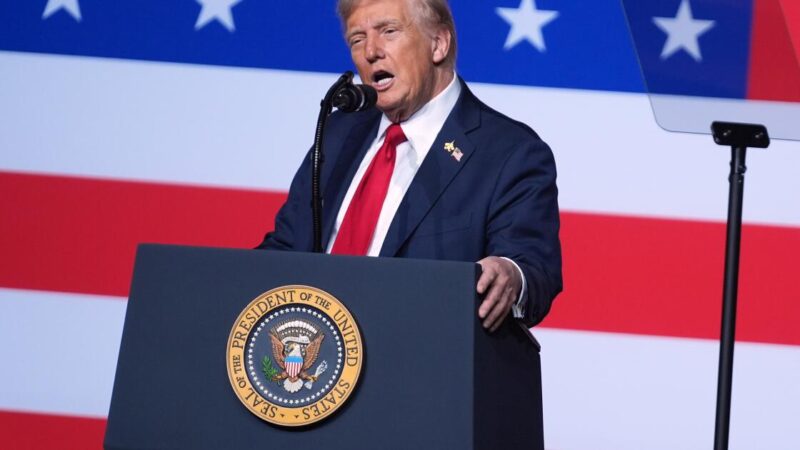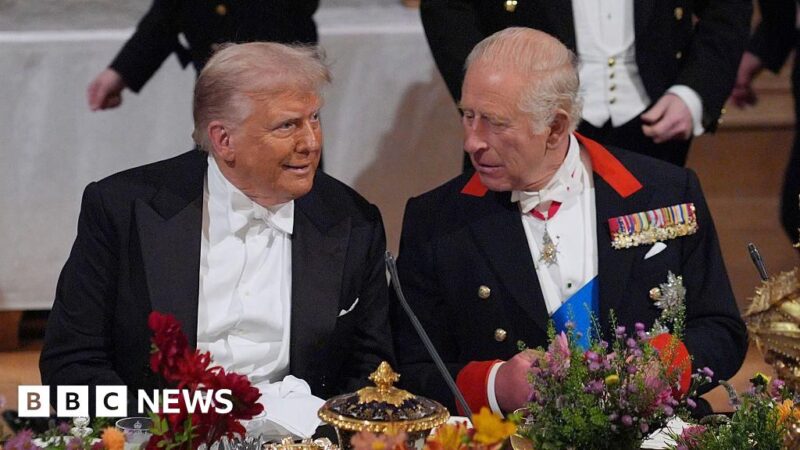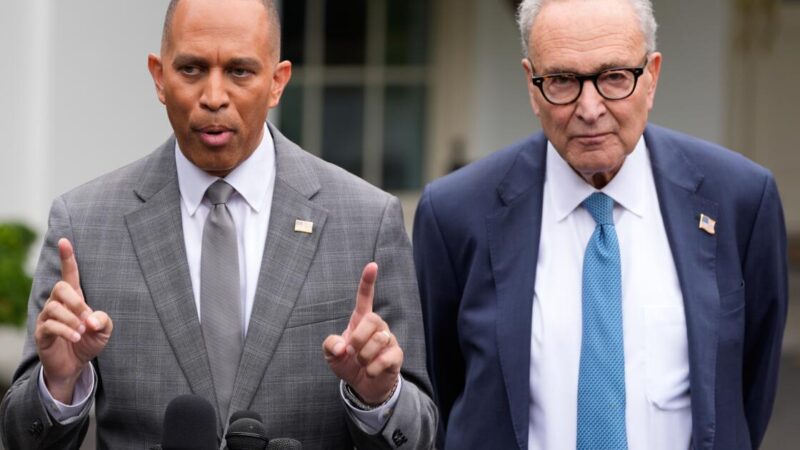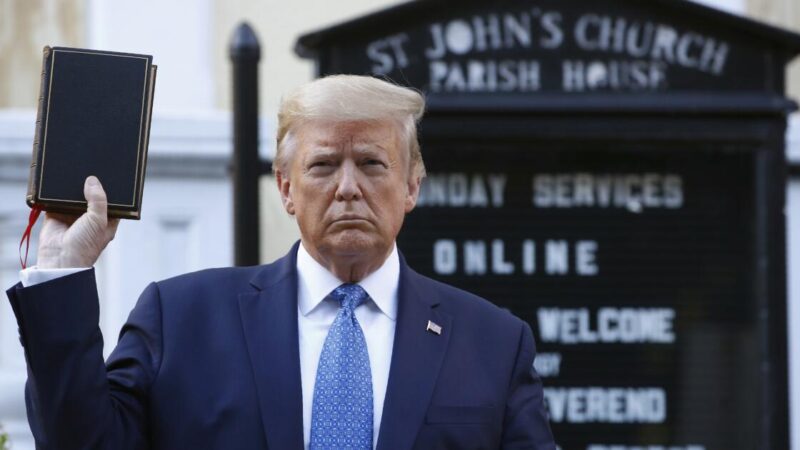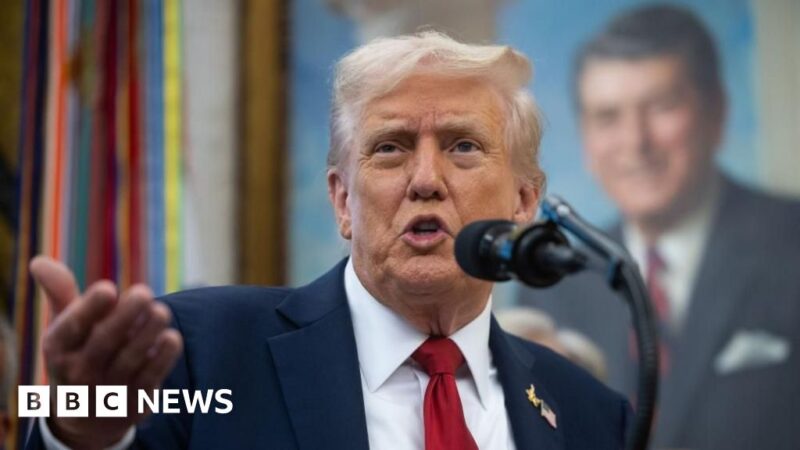Commentary: L.A.’s federal public defender says Trump has inundated his office with immigration cases
With the same first name as the last Aztec emperor, it’s not surprising that Cuauhtémoc Ortega chose to be a fighter.
The federal public defender for Southern California is in charge of a unit that’s always underfunded and perpetually an underdog against the might and resources of the government. His team loses more often than not. But in a year when the Trump administration has tried to bend the law at every level and opportunity to its whims, Ortega has emerged as an important bulwark against federal overreach.
His office filed a motion in August to remove acting U.S. Atty. Bill Essayli from his post, arguing that the top federal prosecutor for Southern California has “no such lawful authority” because he’s yet to be officially confirmed by the U.S. Senate. Ortega and his team — the largest federal public defender’s office in the country — are dealing with a deluge of immigration-related cases filed by Essayli. One of them involved an activist that prosecutors claimed assaulted a Border Patrol agent during a protest in Paramount. A jury acquitted Ortega’s client after screening video evidence that contradicted the government’s claims.
The trial also made national news after Ortega cross-examined Border Patrol sector chief Gregory Bovino about previous comments he had made describing undocumented immigrants as “scum, filth and trash.”
“It was a lot of fun to confront him,” Ortega said quietly but proudly. “Especially since I’m Latino and it wasn’t lost on me that this person was head of the Border Patrol and that a lawyer who’s named Cuauhtémoc is cross-examining him.”
His track record has earned the respect of friends and foes.
“We’ve been on opposite sides more often than not, but I would never question his motives or ethics — ever,” said Essayli’s predecessor, E. Martin Estrada. “Cuauhtémoc is collegial, he’s humble and he’s kind. Frankly, because it’s not the norm, it makes him stand out.”
Ortega interned under him after graduating from Columbia Law School and the two regularly visited law schools while Estrada was in his position to urge students of color to work in the federal justice system.
Anthony Solis sits with Ortega on a panel that approves private attorneys to stand in for the public defender’s office when it has a conflict of interest. The Calabasas-based lawyer remembered being initially “surprised” when he ran into Ortega in Washington, D.C., while both were representing clients accused of crimes related to the Jan. 6 attack on the U.S. Capitol.
“But then I thought about it,” Solis continued. “Most good public defenders aren’t just administrators telling people what to do. They’re in the trenches with their people. That’s leadership. That’s Cuauhtémoc.”
I recently met Ortega at his 10th-floor corner office in Little Tokyo, which has stunning views of downtown L.A. He’s 43, immaculately dressed and groomed and has the countenance of a high school counselor. His mostly sparse office is decorated with mementos from previous successful trials, such as a wooden cross and a copy of Iceberg Slim’s “Pimp: The Story of My Life.” Awards and certificates of recognition spoke to a distinguished career, including one signed by the late Supreme Court Justice Ruth Bader Ginsburg — “She got the accent right on my name.”
He pointed to a Pollock-esque painting in front of his desk created by a death row inmate represented by his predecessor.
“I kept it up there because it reminds you how resilient someone can be even if they’re facing execution. They can still take the time to make something artistic,” he said. “That carried meaning for me because I like to think of my clients as people beyond the charges. That helps me stick with them and stand up with them.”

Cuauhtémoc Ortega, right, at a federal courthouse in 2023 with a client, former Los Angeles City Councilmember Jose Huizar, who pleaded guilty to a bribery and money laundering scheme.
(Irfan Khan/Los Angeles Times)
The son of immigrants from the Mexican state of Zacatecas who originally came to this country without papers, Ortega grew up a “sheltered, nerdy kid” in La Puente. He attended UCLA with the intentions of becoming an opinion columnist and served as editor in chief of the Daily Bruin when I was one of its columnists, although we never had a chance to talk back then. That gig allowed him to intern in 2003 for the New York Times’ opinion section, which he called a “highlight of my life.”
That summer, the paper weathered a plagiarism scandal involving reporter Jayson Blair that led to the resignation of executive editor Howell Raines.
“Some people there told me, ‘This paper is, like, going to fall apart,’” “ Ortega remembered, and they urged him to consider another career. The New York Times most definitely did not fall apart in the years that followed, no matter how many times Donald Trump subsequently proclaimed it “failing.”
Nonetheless, Ortega was already thinking about law school after noticing that former classmates of his from Nogales High were “going into the system … and I thought one wrong turn and I could’ve been there myself.”
After finishing at Columbia, he clerked for a federal judge based in Orange County that Ortega described as “tough. So I was always mesmerized with the public defenders coming in and pushing back on her. I thought, ‘This is dangerous — what are you doing?’ And that’s when it really started to click. Like, I think it would be cool to be able to do that.”
He’s been in the federal public defender’s office for Southern California since 2010 save a few months in private practice. The first two years were “terrifying” but the advice a juror gave him after a losing trial — be more “natural and approachable” instead of rehearsed — made Ortega realize that he needed to relate better to his clients, mostly Latino and working class, instead of “trying to mimic other people’s style.”
Ortega soon became a supervisor but said becoming the top guy “was not really an ambition until shortly before it happened.” He’s proud of having shepherded his office through COVID-19 and also high-profile cases like that of disgraced former L.A. City Councilmember Jose Huizar, whom Ortega wouldn’t comment on other than to say he was “really proud of the work we did in that case.” (Huizar pleaded guilty to racketeering and tax evasion and was sentenced to 13 years in federal prison, seven years less than the maximum sentence.)
I asked how Ortega was feeling right now.
“While Estrada was in office, we basically had none of those [immigration] cases,” he said. “So it’s an opportunity for us to really gear up again and remember that we know how to defend these cases.”
He’s had to deal with a hiring freeze for about a year, but he’s more concerned that court-approved private attorneys such as Solis, whom his office depends on, haven’t been paid since early July because Congress hadn’t funded them — and this was before the current government shutdown.
“I’m afraid those lawyers are going to stop taking cases,” Ortega said. “Without lawyers in court representing defendants, the case cannot go forward. … It’s pretty unprecedented and it’s really terrible for those lawyers and worse for their clients. And so that’s why I’m trying to figure out how to help them.”
Is that why his receptionist was selling cookies downstairs?
“That’s for our client fund,” Ortega said with a chuckle. “Our staff keeps petty cash in case one of our clients needs an Uber or a hotel night or bus fare to get back home. The court doesn’t provide that.”
The staff shortage was one of the reasons Ortega personally defended the case that found his client innocent of assaulting a Border Patrol agent. He especially reveled in cross-examining Bovino, finding it amusing that while the other Border Patrol agents who testified wore suits and ties, the sector chief sported his uniform, which Ortega joked made him look like “the abstract concept of la migra had personified into flesh and blood.”

U.S. Atty. Bill Essayli answers questions at a news conference in Los Angeles on June 4, 2025.
(Damian Dovarganes/Associated Press)
Ortega declined to comment on his office’s push to sack Essayli besides what was already in their legal motion but claimed it was “nothing personal.” He did praise their “positive, cordial relationship” on mutual efforts to speed up trials and said he wasn’t surprised that Essayli seems to be obsessed with prosecuting anything related to President Trump’s deportation avalanche.
“Every prosecutor brings a different set of priorities that in part flows from the priorities of the Justice Department, so I understand where he’s coming from,” Ortega said. “So I don’t really think about it in personal terms. I think about it more in, what is our office going to do to respond to that?”
Essayli’s spokesperson, Ciaran McEvoy, said his boss was unavailable for an interview and had “no further comment.”
Ortega was approved last year to serve another four-year term by the U.S. 9th Circuit Court of Appeals, but doesn’t think he’s a lifer because “it’s sometimes good to have new leadership.”
I asked whether he had a message for Southern Californians.
“We’re here ready to fight aggressively and in a sophisticated way for anyone who faces any federal prosecution at any time,” Ortega said. “We’re not afraid.”
We shook hands. But before I left, Ortega asked whether he could plug once again his plea for Congress to pay the court-approved private attorneys who help out his office.
“It’s important to fund our justice system, because without having a lawyer, you can’t have a trial, you can’t have a proceeding,” Ortega said. “Nobody’s priorities will be advanced if there isn’t a defense attorney present in the courtroom.”
I bought some cookies from his receptionist before I left.
